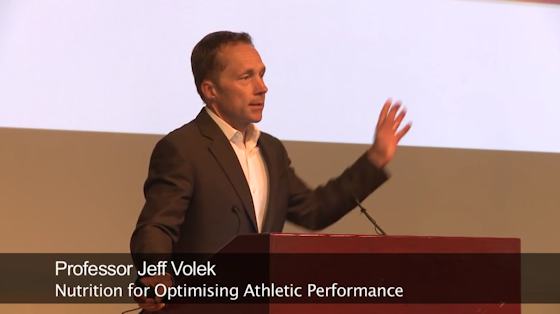Ten Years of New LCHF Research
![]() Low-carbohydrate diets are anti-inflammatory. Exercise produces less oxidative stress, and recovery is quicker.
Low-carbohydrate diets are anti-inflammatory. Exercise produces less oxidative stress, and recovery is quicker.
Once the body adapts to metabolising fats, both glucose and glycogen are conserved during exercise.
Once fats become your main fuel, you can eat and burn a significant amount of saturated fats without risk.
If you are engaged in endurance sport, or power sports, your body composition will improve on a LCHF diet.
Banting Diet and Athletic Performance
 Key ideas here are from "The Art and Science of Low Carbohydrate Performance."
Key ideas here are from "The Art and Science of Low Carbohydrate Performance."
If it isn't broke, don't fix it.
If as an athlete you are happy with your performance, and your recovery rate; if your weight is under control and you have enthusiasm for training, don't do anything.
If you are an elite athlete, coach, trainer, physician or nutritional scientist, LCHF diets will interest you.
If you are a casual athlete with weight control problems LCHF diets will interest you.
If you are a gym veteran who's in a rut, LCHF diets will interest you.
Sustaining Nutritional Ketosis "forever?"
Both ![]() Steve Phinney, and
Steve Phinney, and ![]() Jeff Volek have maintained nutritional Ketosis for years.
Jeff Volek have maintained nutritional Ketosis for years.
Both researchers have a long list of clients doing the same.
The full length book "The Art and Science of Low Carbohydrate Living," contains lots of general advice about how to plan, prepare and eat well balanced, low-carbohydrate meals.
The shorter, companion book, "The Art and Science of Low Carbohydrate Performance," has lots of sport specific advice for specialists.
In addition there are some lengthy testimonials from elite athletes, coaches, doctors, and recreational veteran athletes.
Carbohydrate Intolerance.
Compared with the general population, athletes tend not to be very carbohydrate intolerant.
Most athletes depend on a full tank of glycogen, to fuel their training and performance. (Max 2000kcal.)
That limits both how you train and for how long you can perform at high intensity.


